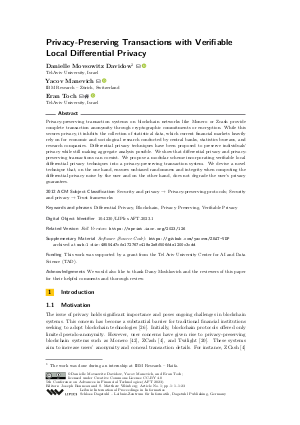LIPIcs.AFT.2023.1.pdf
- Filesize: 1 MB
- 23 pages

 Creative Commons Attribution 4.0 International license
Creative Commons Attribution 4.0 International license




























Feedback for Dagstuhl Publishing